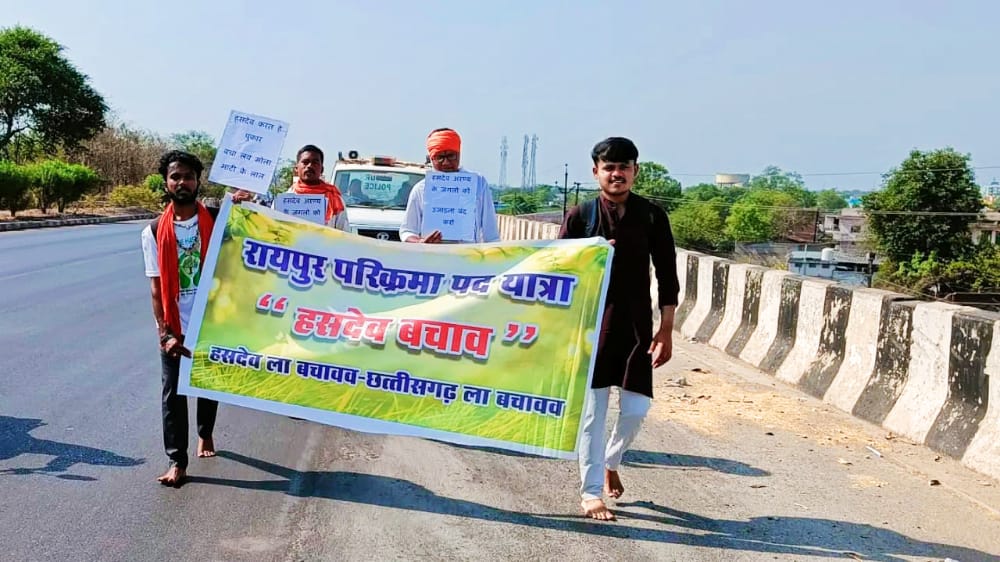The battle to save thick forests around the Hasdeo river, potentially endangered after the government cleared mining and deforestation of Parsa coal blocks in northern Chhattisgarh has not only been attracting global attention but also prompting local people of all hues to raise their voices against the destruction of the gasping lungs of India. A group of Raipur youth with no affiliation with any left or right-wing environmental group undertook a march of around 40 km barefoot in the scorching heat to create awareness about the Hasdeo forest.
23-year-old Ankush Bisen and his friend Pranjal Singh Rajput resolved to register their resistance after celebrities, students, academicians, activists, actors, and actresses across the globe took to the streets against the felling of lakhs of trees in Hasdeo Aranya, one of India’s thickest forest which is home to elephant, tiger, bear, and countless other flora and fauna.
Advertisement
Their group of around 30 youth began from Tatibandh, a northwestern point on the city periphery, and walked around 40 km for three days holding banners and counselling people to step up their efforts to save Hasdeo. Since they walked barefoot, scorching charcoal and concrete roads had their impact on their feet developing blisters with unbearable pain.
The ceaseless struggle against the coal mining at Parsa coal block in Hasdeo Aranya, got sort of a thumbs up when the National Tiger Conservation Authority (NTCA) issued a show-cause notice to the Chhattisgarh government for initiating tree felling and coal mining operation without mandatory prior approval by National Board for Wild Life (NBWL) and NTCA. Similarly, the Apex court on Wednesday also issued notices to the central and state government for allowing mining in the ‘no-go-zone’.
Chhattisgarh Bachao Andolan leader Alok Shukla said that the Hasdeo Aranya is close to Kanha, Bhoramdev, and Achanakmar Tiger Reserves. Mining activities in such a bio-diverse region without the mandatory prior approval of the Standing Committee of the National Board for Wild are illegal under section 38(O)g of the WLPA, 1972, he decried.
While mining is already operational in the PEKB coal mine from 2012-to 2013, a new coal block Parsa was granted environment clearance in July 2019 to extract 5 MTPA of coal. Approval for forest diversion under FCA, 1980 by the state government was given to this block on April 6. Rajasthan Rajya Vidyut Utpadan Nigam Limited (RVUNL) which was allocated the coal blocks, has denied the presence of tigers, elephants, and other critically important biodiversity in the area.
However, several studies, including those carried out to assess the biodiversity and wildlife impact of the PEKB and Parsa coal mines, have concluded that the area connects various tiger reserves, wrote the complainant. The Wildlife Institute of India in a 2014 study has recognized that tigers are present in this area. Korba forest officials have also recorded the presence of tigers in this area in the last three years. Villagers of Ghatbarra Basan and Ajgar Bahar have reported tiger sightings.
The government of India, based on the Wildlife of India (WII) report, had in 2010 declared the dense forests of Surajpur, Sarguja, and Korba districts a ‘no-go zone’. Rajasthan Chief Minister Ashok Gehlot, however, convinced his Chhattisgarh counterpart to clear mining activities in PEKB blocks in 2012.











